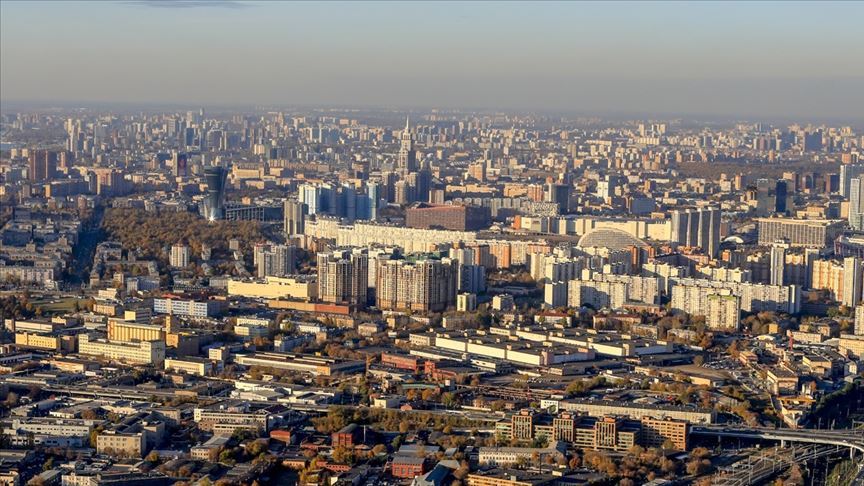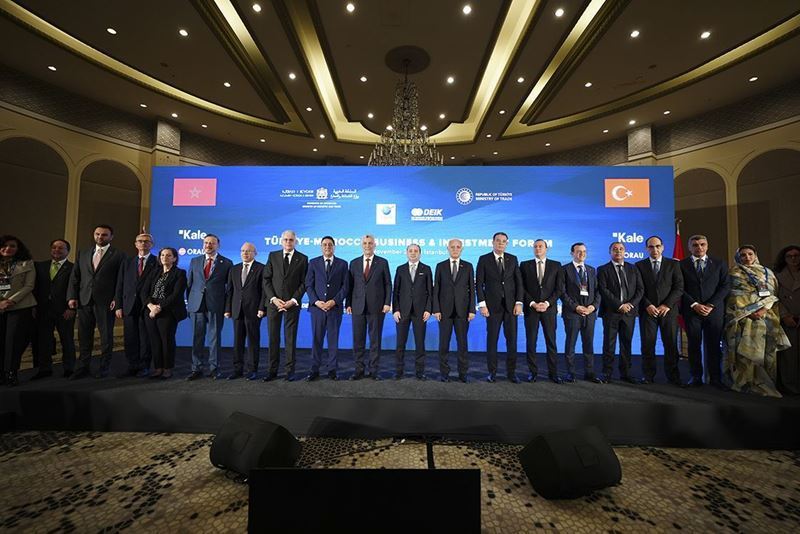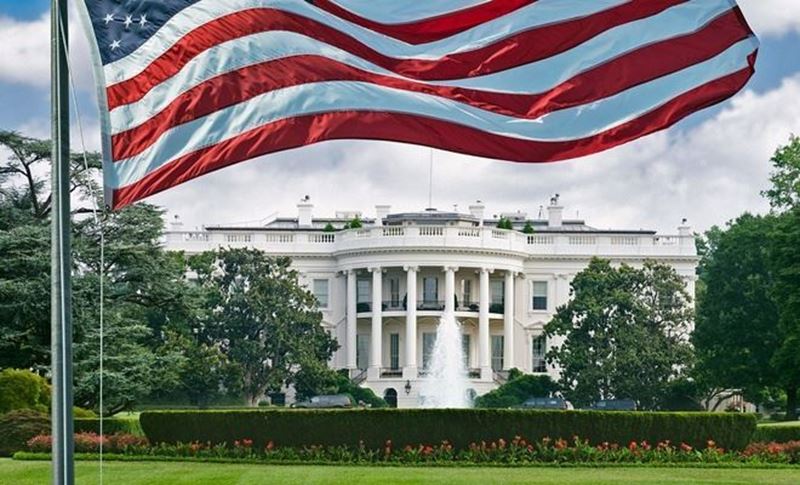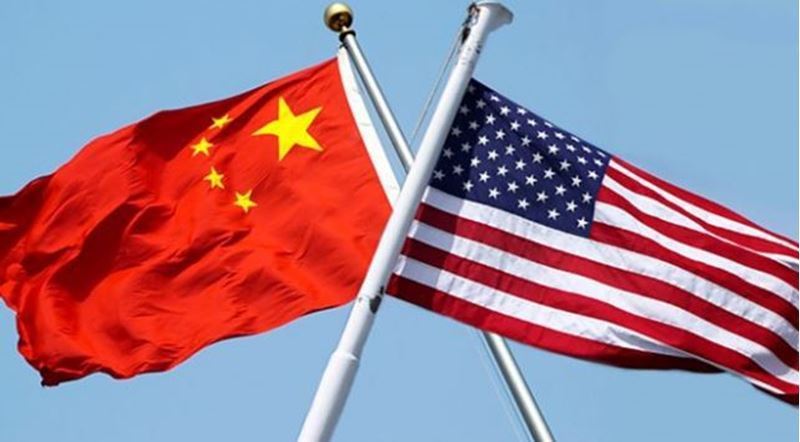The USA and Europe's preparations for heavy economic sanctions against Russia due to the tension in Ukraine brought up the question of how the world and Russian economy would be affected by the said sanctions.
Noting that Russia's invasion of Ukraine will have heavy economic consequences, the USA and European countries have been preparing sanctions packages for the Russian economy and people close to the Kremlin for a while.
Among the prepared packages, various measures such as limiting the international transactions of Russian banks, removing financial institutions from the SWIFT system, ban on exports to critical products, limiting energy trade, additional travel bans for individuals and freezing of assets can be implemented.
While Western countries refrain from sharing concrete details about possible measures against Russia to make sanctions more deterrent, it is often emphasized that any aggression by Russia against Ukraine will have a heavy economic cost.
In the USA, various financial restrictions are at the forefront of the measures against Russia, which the Joe Biden administration negotiated with partners such as the European Union and the UK.
According to the sanctions, Russia's access to SWIFT, the international banking fund transfer system, is cut off. Belgium-based SWIFT enables transactions between financial institutions worldwide to be carried out in a secure and standardized manner.
Currently, most of the cross-border payments in the world are carried out with SWIFT, to which more than 200 countries and more than 11 thousand financial institutions are affiliated. The removal of Russia from the system in question means that Russian banks' foreign commercial transactions will become more difficult.
Western countries had similarly excluded Iran from SWIFT in the past. Since Iran was outside the aforementioned system, it had difficulties in collecting oil revenues and commercial payments, and faced various problems in the country's economy.
However, some Western officials point out that if it is removed from the system in question, it will also harm the financial institutions of countries such as the USA and Germany, which are engaged in commercial activities with Russia.
Bans on the use of dollars and Russian banks may come
Among the possible measures is the US banning Russia's trade transactions and exchange opportunities with the dollar. In this case, it is expected that the prohibition of the use of the dollar, which is the most common currency in the world trade system, by Russia and the imposition of fines on financial institutions that make dollar transactions with the country, may adversely affect the Russian economy.
It seems to be an inevitable effect that the Russian economy, which is significantly dependent on oil and natural gas export revenues, will be negatively affected by the ban on transactions with dollars.
Further exclusion of Russia from bond and bill transactions in international markets stands out as another possible measure.
The West's ban on Russia and its institutions from financial markets, and the country's blocking of bond and bond issuance, is expected to cause economic damage. This situation also increases Russia's borrowing cost, increases its interest rates and accelerates the depreciation of its currency.
The "blacklisting" of Russian banks is also among the possible restrictions evaluated by the USA and Europe. Thus, there is an opinion that it would be impossible for Russian banks to carry out international financial transactions.
There is also the possibility that Western countries will block the sale of some basic technological products to Russia. There is an opinion that Russia may be banned from selling an indispensable technology of digital life, such as a chip, electronic equipment or various software.
The energy sector can also be targeted
The Russian economy provides significant financial resources from the export of energy products. The fact that Russia, whose biggest export products are natural gas and oil, cannot sell these products may cause a situation that may put the country into crisis.
The option to outlaw the West's purchase of oil and gas from Russian companies is also on the table. The complete cancellation of the Nord Stream 2 natural gas pipeline project, whose approval process is pending, is among the possible measures. However, in the recent period when natural gas and oil have reached record levels in the global markets, such a measure may also come at a serious cost to the West.
The Western world has sanctions against various individuals and institutions in Russia. Expanding the scope of these sanctions is among the options.
A travel ban and asset freeze are also being considered for Russian President Vladimir Putin and his close circle. In addition, taking new measures against the Russian business world, limiting the transactions of Russian business people in Western countries, "where did you find it?" It is also possible to apply an application similar to the law.
Russia is trying to create a shield
Under pressure from the US and EU, Russia accelerated the process to reduce the use of dollars to hedge risks in the economy and international trade, after illegally annexing Crimea in 2014.
In the data released by the Central Bank of Russia for the first half of 2021, it was revealed that the share of the dollar in the country's international reserves decreased from 22.2 percent to 16.4 percent compared to the same period of the previous year.
The Russian Ministry of Finance also announced on July 8 that the share of dollar assets in the National Welfare Fund was reduced to zero.
Russia's international reserves reached $639 billion as of last month, reaching the highest level in history.
Russian Finance Minister Anton Siluanov said on January 14th that the sanctions were disturbing, "but our institutions can deal with it." He said that his country was prepared for sanctions.
Growth was limited while Kremlin protected its economy
In addition to its "dedollarization" moves, the Kremlin administration had stopped most of the food imports produced in Western countries, such as fruit, vegetables, meat and dairy products, with retaliatory steps implemented in 2014.
Another step Russia took in the said period was to develop alternative trading partners. The mutual trade with China, which is one of the "new" partners in question, has exceeded 100 billion dollars per year.
Due to the risk of being removed from the SWIFT system, Russia started to develop SPFS (Financial Messaging System) in 2014 and made it available in December 2017.
The Ministry of Finance of Russia announced in October 2019 that an agreement was signed with Turkey on trade in national currencies, and that the said agreement could also expand the connection of Turkish banks to SPFS.
The Central Bank of Russia also wants to start testing the digital ruble this year, introducing a new, additional form of payment, along with cash and non-cash payments.
Although Russian officials express that they are prepared to impose harsh economic sanctions on Western countries, economic growth and the limited increase in the purchasing power of the people are often on the agenda.
While the Kremlin prioritizes supporting state-owned enterprises, the Russian economy has been growing less than the world average since 2014 due to tight fiscal policies.
While the real income of Russian citizens decreased by 9.3 percent in 2020 compared to 2013, the capital outflow from Russia increased from $50.2 billion in 2020 to $72 billion in 2021.









Comments
No comment yet.